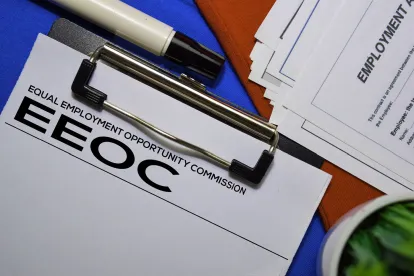The Center for Investigative Reporting’s (CIR) lawsuit against the U.S. Department of Labor, Office of Federal Contract Compliance Program (OFCCP) over EEO-1 report access has ended — at least for now — in the court ordering release of the reports. Center for Investigative Reporting v. U.S. Dep’t of Labor, No. 3:22-cv-07182-WHA (N.D. Cal. Dec. 22, 2023).
Background
The CIR submitted a Freedom of Information Act (FOIA) request to OFCCP in 2019, seeking all Type 2 Consolidated EEO-1 Reports filed by federal contractors from 2016 to 2020. These reports reflect the breakdown by job classification of a company’s workforce by race, ethnicity, and sex.
In response to CIR’s request, OFCCP published notice in the Federal Register notifying contractors of the process if they wished to object to the release of their EEO-1 Reports. Many contractors submitted objections to the release of their reports. OFCCP released to the CIR the responsive EEO-1 Reports for contractors who did not object.
In November 2022, the CIR sued OFCCP to compel release of the remaining requested EEO-1 reports. In response, OFCCP asserted, based on employer objections, the reports were protected from disclosure under FOIA.
The district court granted summary judgment to the CIR, ruling that employers’ EEO-1 reports are not exempt from disclosure under FOIA.
Key Highlights
1. EEO-1 Reports are Non-Commercial: OFCCP focused on the sensitivity of the information in these reports, which could provide insight into the diversity of an employers’ workforce and, if disclosed, compromise an employer’s competitive edge. OFCCP also argued the EEO-1 reports offer a window into an employer’s strategic staffing decisions and internal dynamics. OFCCP maintained such information could reveal trends and strategies integral to an employer’s business operations, particularly when viewed over several years. Rejecting the argument, the court held EEO-1 reports are not “commercial” in nature, because they broadly cover workforce data without delving into specific operational or financial details of businesses.
2. EEO-1 Reports are Not Protected by Trade Secrets Act: OFCCP argued the EEO-1 reports should be considered confidential business information, deserving protection under the Trade Secrets Act. The court dismissed this argument, stating EEO-1 report data do not qualify as trade secrets or confidential commercial information under the Act.
3. No Evidence of Demonstrated Harm From Disclosure: OFCCP also asserted the reports should not be disclosed due to the potential loss of competitive secrets and the unintended harm that could result. Rejecting this argument, the court found no substantial evidence of direct harm or that businesses treat EEO-1 report information as secret.
Next Steps
OFCCP has until Feb. 20, 2024, to appeal the court’s decision. If OFCCP does not appeal, OFCCP must release the remaining EEO-1 reports responsive to the CIR request by the same date.
This decision marks another step in the ongoing dialogue about transparency and privacy in employment practices. Employers should carefully review their reporting strategies (with a close eye on potential unintentional future disclosures) and consider the broader implications of this ruling on their operations and public image.






 />i
/>i
